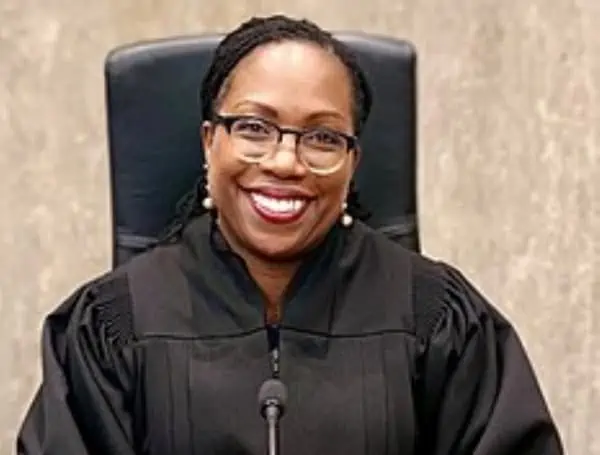
Associate Justice Ketanji Brown Jackson invoked a classic Christmas movie and racism during oral arguments in a First Amendment case out of Colorado at the Supreme Court Monday.
The case, 303 Creative v. Elenis, centers around Lorie Smith, a Colorado web designer who sued Colorado over anti-discrimination laws, claiming that the law compelled her to express support for same-sex marriage. A divided panel on the United States Court of Appeals for the Tenth Circuit ruled against Smith in 2021.
“I want to do video depictions of ‘It’s a Wonderful Life,’ and knowing that movie very well, I want to be authentic, and so only white children and families can be customers for that particular product. Everybody else… I will sell them anything they want, just not the It’s a Wonderful Life’ depictions,” Brown Jackson said to attorney Kristen Waggoner, CEO, President, and General Counsel of the Alliance Defending Freedom. “I‘m expressing something, right? … I can say anti-discrimination laws can’t make me sell ‘It’s a Wonderful Life’ packages to non-white individuals.”
I would say first of all … when there is a message and a status and it’s overlapping, the court would say that message wins in that instance,” Waggoner responded.
In the news: Florida Governor, First Lady DeSantis Announce New Funding for Hurricane Ian Victims
Jackson pressed the point in further questions to Waggoner.
“I have certain products I will only sell to white individuals because the speech that I‘m trying to depict is the authentic depiction of that scene as I understand it, and that I want to put out there in the world and it has my signature on the bottom of it, so people are seeing my photos and I want my photos of it‘s a wonderful life to be authentic, meaning no people of color,” Jackson said, continuing the hypothetical.
Jackson further invoked Christmas, citing a photographer who refused to photograph non-white children with Santa Claus.
“Can you give me your thoughts on a photography business in a shopping mall during this holiday season that offers a product called scenes with Santa?” Jackson asked Waggoner. “This business wants to express its own view of nostalgia about Christmases past by reproducing classic 1940’s and 1950’s Santa scenes they do it in sepia tone and they are customizing each one, it’s not off the rack, they are bringing people and having them interact with Santa as children because they are trying to capture the feelings of a certain era. But precisely because they are trying to capture the feelings of a certain era, their policy is that only white children can be photographed in this way because that’s how they view the scenes with Santa that they are trying to depict.”
“The specific objection you are including is not necessarily in that photograph but even if it were, this court has protected vile, awful, reprehensible, violent speech in the past,” Waggoner responded after some back-and-forth.
The Supreme Court decided a similar case in 2018 surrounding Masterpiece Cakeshop, whose proprietor, Jack Phillips, refused to bake a customized cake for a same-sex wedding. Associate Justice Anthony Kennedy wrote that Colorado “was neither tolerant nor respectful” of Phillips’ religious beliefs.
The Supreme Court is expected to decide the case by the end of its session in June 2023.
Visit Tampafp.com for Politics, Sports, and National Headlines.
Android Users, Click Here To Download The Free Press App And Never Miss A Story. Follow Us On Facebook Here Or Twitter Here.
